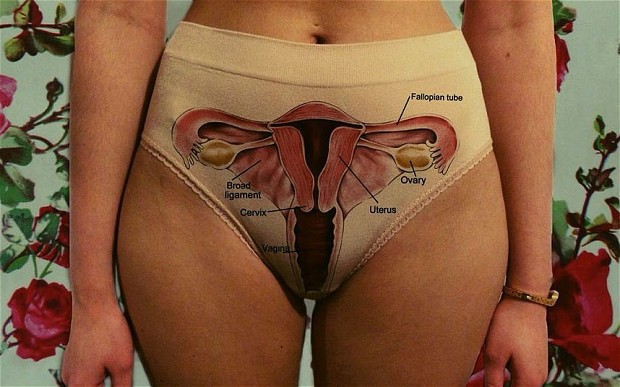Vagina? 1/2 of young women unable to pinpoint.
Half of young women are unable to properly label a vagina on a medical diagram, while 65 per cent have admitted they have a problem simply using the words vagina or vulva.

by Jon the nudist · Published · Updated

As Gynaecological cancer awareness month kicks off, research by the Eve Appeal unearths worrying information about young women’s awareness of their own bodies and the potential warning signs of the five cancers that can affect the womb, ovaries, vulva, vagina, and cervix. Our Friends over at Cherish the Cunt run cunt loving quests on a regular basis and if you want to become a lot more aware of your vagina, cunt, pussy then would really suggest checking it out!
Only half of the 1,000 women surveyed between the ages of 26 and 35 were able to label the vagina accurately, whereas women age between 66 and 75 scored far better; eight in 10 were able to able ovaries and nine in 10 could label the womb.
Of the youngest women surveyed, one in five aged between 16 and 26 were unable to name a single correct symptom of any of the five gynaecological cancers, while nearly 40 per cent of this age group said they used codes names to discuss any issues, referring to “lady parts” or “women’s bits” instead of using the term vagina.
The issue of feeling embarrassment around gynaecological issues have also been found to hinder women from seeking help with doctors. More than one in 10 women aged 16 to 35 said they find it difficult to discuss gynaecological issues with their GP, an nearly a third said they had completely avoided visiting a doctor when they’ve had an issue due to feeling embarrassed.
“We know our own bodies and if something is happing that isn’t normal for a person, then they just need to get it checked out; it doesn’t mean it’s going to be anything bad, but it just needs checking,” a spokesperson for the charity said.
The Eve Appeal said that more than 20 per cent of women don’t attend a Smear when invited by their GP, and that the number of people having the screening is declining, despite the awareness created by before her death.
Helena Morrissey, chairman of the charity, said: “At the Eve Appeal we know how important it is to promote straight talking about the signs and symptoms of gynaecological cancers to women of all ages, and this survey has highlighted just how far we still have to go to make this happen.
“These cancers have some of the worst outcomes for women, with a 40% mortality rate. Understanding the symptoms will save lives, which is why we are urging women this Gynaecological Cancer Awareness Month to talk more openly about these life-saving issues.”

Tags: cancercuntThe Perfect VaginaVagina

Jon the nudist
Well, my name is Jon the Owner of You Only Wetter a 37-year-old, Poly practicing, Dom with two great kids. I am a happy busy internet geek with a love of all things Google and I love spending time sitting on the sofa watching the latest Dr. Who, Mythbusters or a movie. I am a nudist mostly at home but do like to go down to the beach and bare all or go for a little walk around some hidden woodland really would like to do the whole nudist holiday :)
by Anonymous Blogger · Published March 27, 2014
by Jon the nudist · Published November 13, 2015
by Anonymous Blogger · Published April 9, 2014